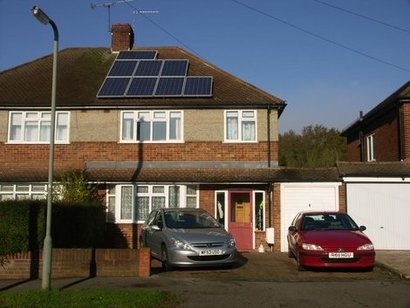
Monday officially marked the first day of the UK solar industry’s post-Feed-in-Tariff era, with the scheme closing to new installations as of midnight on Sunday. The period in which this hugely successful scheme was active saw solar PV bring clean power to over 900,000 homes across the country, as well as to thousands of businesses and community groups. 93 percent of solar users have said they are satisfied with its performance and robust quality assurance standards mean that, according to the Renewable Energy Consumer Code, fewer than 1 percent of all installations have been met with complaints. Thanks to the scheme, solar is now a common-place sight in neighbourhoods all over the UK and year on year has retained its crown as the nation's favourite energy generation technology.
However, there has naturally been understandable confusion in the industry about what happens next. The STA has set out clear answers to key questions for the industry on its website including on; the need to maintain MCS standards; metering requirements for installers going forwards; EPC rules; the new Smart Export Guarantee and what to tell customers.
The STA’s online resource for homes that want to go solar, includes an online league table for energy supply companies offering incentives to go solar, and for Smart Export Guarantee offers. Yesterday Octopus Energy went live with the first genuine SEG for the domestic sector, offering metered, settled export. This is very positive news for the solar industry and potential domestic prosumers.
The online resource has been developed in part as a response to misleading claims in the consumer media about the benefits of going solar following the closure of the export tariff, and the shortage of independent information about investing in battery storage and about solar in relation to smart metering. It provides an indicative breakdown of the economics around purchasing an optimal domestic system, helps consumers to navigate the Smart Export Guarantee, and offers answers to an abundance of frequently asked questions that the STA and our members are regularly asked.
The STA and MPs from all parties have advocated strongly for households and small businesses to receive a fair market payment for the surplus power they put on the grid, in line with EU law and has been working with innovative suppliers since last year. The Government has recognised that it would not be acceptable for people to give their power away on the grid for free and has said that households going solar from tomorrow will be eligible for the SEG when it is appears. Octopus Energy has surprised the industry by coming forward with a SEG ahead of the rest of industry where the system still has barriers to overcome. The STA is continuing to press for market-wide export solutions, including for the non-domestic sub 50kW market.
“We are keeping a close eye on these rapidly moving market developments, and will be helping households to identify the best Smart Export Guarantee offers through a supplier league table” said Chris Hewett, STA Chief Executive. “We are delighted to be able to make Octopus Energy the first addition to the table and look forward to seeing more suppliers come forward with offers in the future.”
The STA advises the industry and all householders investing in solar and battery storage to stick firmly with established quality assurance scheme MCS.
The closure of the scheme has run into further criticism due to the news that 60 (>50kW) projects, having registered for the FiT, have been denied, as a result of the cap on the amount of capacity allowed in the >50kW band being reached prior to March 31. 32MW of private and public sector solar projects will miss out on the FiT, as well as 4MW of community energy projects, bringing the financial viability of many of these projects into question. The STA raised concerns over the poor communication of vital information regarding capacity cap status with the Department for Business, Energy and Industrial Strategy, and Ofgem, earlier in March.
“Having grown accustomed to the ups and downs of the UK solarcoaster, perhaps it was too much to expect a smooth end to the Feed-in-Tariff” Mr Hewett added. “The fact that these projects have been left stranded as a result of arbitrary capacity caps is another blow to an industry that is already struggling with more than its fair share of challenges.”
For additional information:

